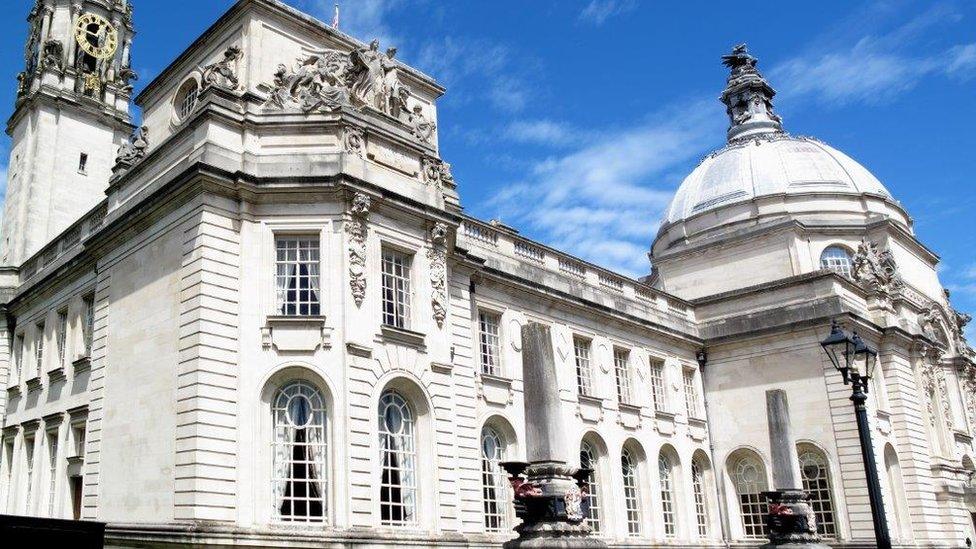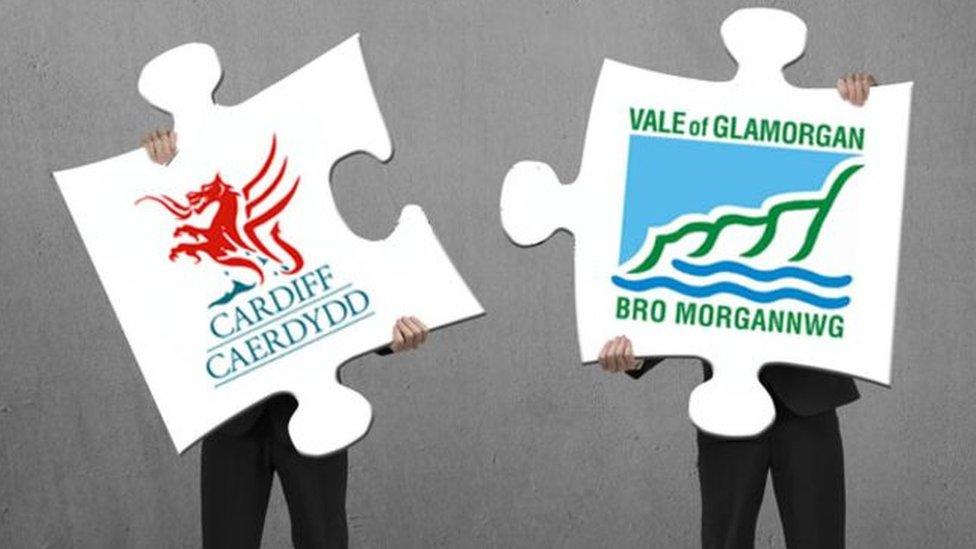Welsh council elections: A 'poisoned chalice' for victors
- Published

On 4 May, voters in Wales decide who will be responsible for running their councils for the next four years.
BBC Wales political correspondent Arwyn Jones said financial pressures could make winning those elections a poisoned chalice.

Our councils are responsible for running schools and libraries, fixing the roads, running social care homes and making sure our bins are emptied.
They are often seen as an unglamorous, but vital, layer of public life.
But local authorities are under great financial strain.
Cuts to public spending have meant that the money sent to town halls from the Welsh Government has reduced by £761m, or 17% since 2010, according to Wales' public spending watchdog, the auditor general, external.
This has had an impact on services.
You may have noticed that libraries have been closing across the country. If your leisure centre is still open it may well be for fewer hours.
Although councils have been given slightly more money next year, many are still struggling. At the same time there are claims that the cost of social care will double over the next 15 years.
All of a sudden you see why Steve Thomas, chief executive of the Welsh Local Government Association (WLGA), said he does not quite get why anyone would want to be a councillor over the next few years.

Some leisure centres have been trimming their hours to cut costs
So what can councils do?
There has been a lot of talk about having fewer of them as a way of saving money, but the Welsh government's plan to cut their number from 22 to eight or nine has now largely gone away.
Instead, they will be required to deliver services - including social services and aspects of education - under a system of "mandatory regional working".
They will also be grouped into three regions - south-east Wales, south-west and central Wales, and north Wales - to work together on developing the economy and on transport.
Decisions will be taken by joint committees of councillors, with the authorities pooling their budgets.
That ensures they save money and could improve services, but it also raises a couple of other issues.
Say you live in Wrexham. And say, for the sake of argument, that Wrexham council has pooled its education services with Flintshire and Denbighshire.
If a decision is taken to close your local school, who do you blame? How do you hold them to account?
When I put that point to Local Government Secretary Mark Drakeford on the Sunday Politics Wales programme last year he said there was a "question about answerability and accountability which we have to work through".

Brexit has been described as posing threats and opportunities for local councils
On top of that, if all the major functions of councils are to be carried out on a regional basis in future, why not just merge, as the Welsh Government originally wanted?
Councillors say their role will be more important in future and that accountability will remain with them.
Another way of saving money without compromising the quality of services is getting voluntary or third sector bodies to take over some functions.
Councils are keen on this option, but there was a warning recently that "performance management arrangements are too inconsistent to provide an adequate level of assurance that services are working well and resources are being used effectively".
As with every aspect of public services, Brexit will also have an impact on how councils work. It has been called a "threat to local authorities" and a "seismic change in UK public policy, external".
Turbulent
But the WLGA says Brexit could be a benefit.
They want to keep the funds which came to parts of Wales through EU grants and can see an opportunity "to introduce greater flexibility and to reduce the bureaucracy, external that has existed under EU programmes."
When you speak to council leaders, even those representing different political parties, they will tell you whoever wins the council elections in May will be given a bit of a poisoned chalice.
They all want the chance to serve the residents of their wards, but they are also painfully aware that the next four years may well be the most turbulent that our councils have seen in many years.
- Published31 January 2017

- Published26 January 2017

- Published8 January 2017

- Published19 October 2016

- Published4 October 2016
